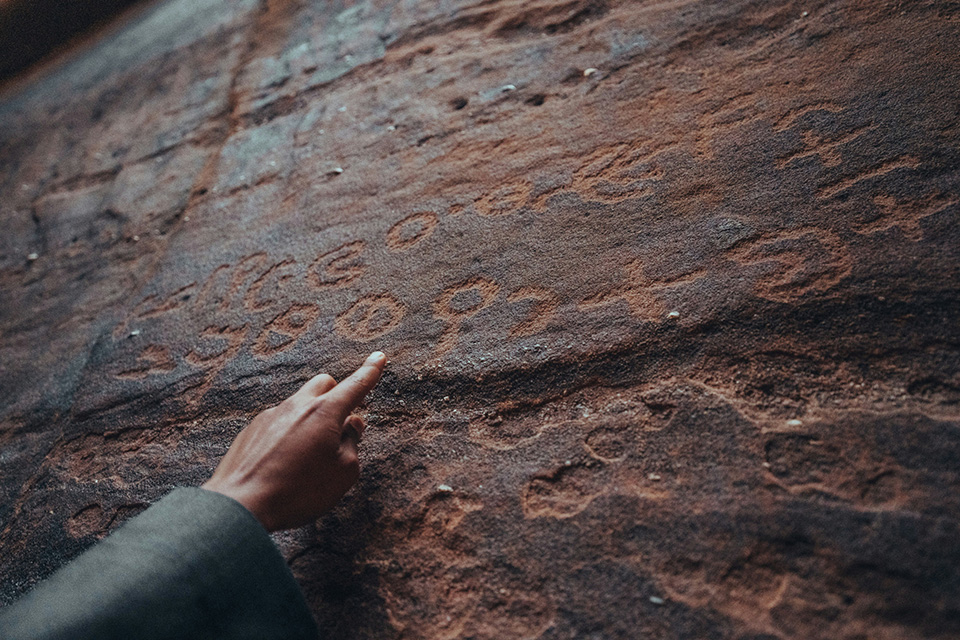- Hajj Visa
Booking Your Hajj Trip with Ease
All set to perform Hajj? Here’s how you can book your Hajj trip.
Introduction
Embarking on the pilgrimage of Hajj is a profound and deeply spiritual journey for millions of Muslims around the world. As one of the Five Pillars of Islam, every physically and financially capable Muslim is expected to embark on the trip at least once in his or her lifetime. Muslims believe they may purify themselves of sin with the completion of Hajj. Given its significance, planning and booking your Hajj trip requires careful consideration and preparation to ensure a smooth and fulfilling experience.
In this comprehensive guide, we will walk you through the step-by-step process of booking your Hajj trip, from choosing a Hajj package to making travel arrangements and preparing for the sacred journey ahead.
How to prepare for Hajj
Before we dive into the different steps to booking your Hajj trip, we must acknowledge the importance of proper planning and preparation, both essential to a successful and hassle-free Hajj. The following are some tips to get ready for the pilgrimage financially, physically, and spiritually.
Financial Preparation
Saudi Arabia’s Ministry of Hajj & Umrah has authorized travel service providers such as travel agencies to make Hajj packages available to pilgrims. This makes it easier for Saudi authorities to facilitate the issuance of Hajj visas, while it also makes the process simpler, easier, and more convenient for pilgrims to plan their Hajj trip.
Now, the costs will vary depending on your country of origin, as well as the types of accommodation and transport you select as part of your Hajj package. The cost of the Hajj travel package—which includes the visa fee—can range anywhere between SAR 13,780 ($3,941) and SAR 45,277 ($12,072).
Depending on your financial capability, it can take several months to years to accumulate sufficient funds for Hajj. The key to saving enough money for the pilgrimage is to do your research and to save ahead of time.
Nusuk Hajj, Saudi Arabia’s one-stop-shop platform for Hajj and Umrah, lists recognized service providers from which you can avail of your Hajj package. You can review these to know how much you’ll need to save.
Before you select a Hajj package, here are things to consider:
- Traveling solo or with a group
You can save money by sharing costs with a group, and you can benefit from the services of a Hajj guide as you go about the different Hajj rituals. However, if you are with family, you can also end up spending more if you need to cover their meals and transport. - Desired level of comfort
As mentioned, there are different accommodations that you can avail of among the offered Hajj packages. You have the option to stay in a luxury hotel, stay in a single room, or share a room with other pilgrims. You also need to spend on your transportation between cities (via the Haraman high-speed railway, plane, shuttle bus, or private car). - Meals
Meals are a vital part of the Hajj journey as you will need to stay energized throughout the different rituals. If you are staying in a hotel, you will enjoy access to filling meals. You will also need to stay hydrated in the hot weather and purchase snacks for the day. - The sacrifice
There is a high chance you may need to offer one sacrifice while you are in Mecca. This can be already included in your Hajj package, otherwise, if not, you can purchase one ahead of time in the city. The cost will depend on whether you will be sacrificing a cow or sheep, for example, and bigger animal sacrifices can be split with other pilgrims.
Tips for saving for Hajj
Now that you’ve done your research and you have a better idea of how much you will potentially need for your Hajj pilgrimage, you can target this amount as you start saving up for it. Here is some advice that may help:
- Establish a budget based on your target savings.
It can be challenging to decrease your spending and stick to a tighter budget, but with a disciplined approach, you can set up a separate Hajj fund without touching your emergency fund or personal savings. You can open a separate savings account for your Hajj money and schedule regular transfers from your main bank account. - Pool funds with family and friends.
Great things can be done in numbers, and if you will be traveling with family and/or friends, you may want to invite them to pool your funds together for Hajj. Establish a target date on which you can equally distribute the money among those taking part. - Take on the sidelines for extra income.
Side gigs are a definite game changer to help you accumulate money faster for Hajj. You can deposit the income from the sideline straight to the dedicated Hajj savings account. - Pick the more affordable Hajj packages.
Having reviewed the Hajj packages offered by authorized service providers, take your pick from those within your budget. As mentioned, you are free to design your own Hajj trip, but this will take more effort and advanced booking.
Physical Preparation
The rituals of Hajj may be physically taxing even for pilgrims who are active and fit. Take, for instance, the Tawaf, wherein you have to walk seven times counterclockwise around the Kaaba, or the cubic structure veiled with silk and cotton inside the Great Mosque of Mecca. There is also the Sa’ay, wherein you have to run or walk seven times between the hills of Safa and Marwah.
You don’t have to work out at the gym to achieve the physical fitness required for Hajj. Simple physical activity such as walking for 30 minutes each day for three months can do wonders to build your stamina for the rites of Hajj. The key is to do light exercises consistently for months before the pilgrimage to build your strength and endurance.
Changes to your diet will also help you get healthier for Hajj. Make sure to incorporate more fruits and vegetables in your meals months before the pilgrimage.
Spiritual Preparation
Perhaps the most important aspect to look after is your spiritual preparation for Hajj. Establishing a state of spiritual readiness will help your journey become enriching. You must also be ready to be patient and forgiving as disputes during Hajj are forbidden.
If you are new to Hajj and if you are traveling with a group, you may want to avail of the services of a Hajj guide as you go through the rituals. You may also obtain a Hajj book if you’d like to navigate the rites on your own.
It is also helpful to keep practicing your Sunna or your voluntary prayers, doing your Athkar or words of remembrance, and reciting the Qurʾān more often. There are also Hajj seminars for first-timers.
Make sure to also prepare your supplications and invocations for your dua. Look into yourself and ask yourself what you would wish to seek from Allah.
Steps to booking your Hajj trip
Now that we know the essentials of preparing yourself financially, physically, and spiritually for Hajj, let’s dive into the specific steps so you can start booking your Hajj trip.
Step 1: Research and Choose a Hajj Package
The first step in booking your Hajj trip is to research and select a Hajj package that suits your preferences, budget, and travel requirements. Consider factors such as the duration of the trip, accommodations, transportation, group size, and the services offered by the Hajj operator. It’s essential to choose a reputable and licensed Hajj operator recognized by the Saudi Ministry of Hajj and Umrah.
Step 2: Register with a Licensed Hajj Operator
Once you’ve chosen a Hajj package, register with your selected Hajj operator as early as possible to secure your spot. Provide the necessary personal information and documentation required for registration, including your passport details, contact information, and any specific preferences or special requests.
Step 3: Make a Deposit and Payment Plan
Upon registration, you will typically be required to pay a deposit to confirm your booking. Review the payment terms and conditions outlined by the Hajj operator, including the total cost of the package and any installment plans available. Ensure that you understand the payment schedule and deadlines for submitting payments to avoid any complications.
Step 4: Receive Confirmation and Travel Documents
Once your booking is confirmed and payments are processed, you will receive a confirmation letter or email from the Hajj operator. This confirmation will include details of your Hajj package, accommodation arrangements, transportation options, and other pertinent information. Additionally, you will receive essential travel documents, such as your visa, flight tickets, and itinerary.
Step 5: Attend Pre-Hajj Orientations and Workshops
Many Hajj operators conduct pre-Hajj orientations and workshops to provide pilgrims with essential information, guidance, and preparation for the journey ahead. Attend these sessions to learn about the rituals of Hajj, safety guidelines, health precautions, and other important aspects of the pilgrimage. Take advantage of this opportunity to ask questions and clarify any concerns you may have.
Step 6: Pack and Prepare for Your Journey
As the departure date for your Hajj trip approaches, begin packing and preparing for your journey to the holy cities of Mecca and Medina. Make sure to pack appropriate clothing for both men and women according to the dress code prescribed for Hajj. Bring essential items such as toiletries, medications, prayer accessories, and comfortable footwear for walking. Additionally, familiarize yourself with the rituals of Hajj and mentally prepare yourself for the spiritual significance of the pilgrimage.
Step 7: Departure and Arrival in Saudi Arabia
On the day of your departure, arrive at the airport well in advance of your flight. Check in for your flight and proceed through security and immigration checkpoints with your travel documents, including your passport and visa. Upon arrival in Saudi Arabia, you will be greeted by representatives of your Hajj operator and escorted to your accommodation in Mecca or Medina. Take this time to rest and acclimate yourself to the surroundings before beginning the rites of Hajj.
Frequently Asked Questions
While we’ve provided a comprehensive guide to booking your Hajj trip, there may be other points we were unable to cover. The following are answers to some frequently asked questions about Hajj.
Can I apply for a tourist visa so I can perform Umrah?
Yes, you may use the Saudi tourist visa to perform Umrah, just not during the Hajj season.
Can I use my Saudi tourist visa to perform Hajj?
No, the tourist visa does not permit pilgrims to perform Hajj. You must apply for a specific visa through the Ministry of Hajj and Umrah.
When is Hajj performed?
Hajj dates are identified annually based on the Islamic lunar calendar, also known as the Hijri calendar. It’s an Arabic calendar that is made up of 12 lunar months (Muḥarram, Ṣafar, Rabīʿ al-Awwal, Rabīʿ al-Thānī, Jumādā al-Awwal, Jumādā al-Thānī, Rajab, Shaʿbān, Ramaḍān, Shawwāl, Dhū al-Qaʿdah, and Dhū al-Ḥijjah) in a year of 354 or 355 days.
The Hijri calendar is based on the moon while the Gregorian calendar is based on the sun. A new moon signals the beginning of each Hijri month, while a crescent moon indicates the end of the month.
Hajj typically takes place from the 8th to the 12th day of the Islamic month of Dhu al-Hijjah, the last month of the year. This is why Hajj dates tend to differ slightly every year as it depends on the sighting of the moon, as well as the lunar calendar. Traditionally, there are Muslim authorities dedicated to observing the night sky to spot the crescent moon and mark the end of the month.
Once the Hajj dates are announced, Saudi authorities and pilgrims across the globe start to prepare to travel to Mecca to perform sacred rites.
How many perform Hajj each year?
Based on official published statistics, the average number of Hajj pilgrims between 2000 and 2019 was over 2.2 million yearly. In 2023, meanwhile, more than 1.8 million pilgrims undertook the pilgrimage.
What happens at Hajj?
Hajj consists of a series of rituals performed over several days during Hajj season, each with its significance. Collectively, these rituals are known as the five pillars of Hajj:
- Ihram: The Sacred State of Pilgrimage
Ihram signifies a state of consecration and spiritual purity, during which pilgrims abstain from certain actions, such as cutting hair or nails, using perfumes, and engaging in arguments or conflicts.Before entering the state of Ihram, pilgrims purify themselves through wudu (Islamic procedure for cleansing parts of the body) and wear special white garments, symbolizing equality and purity. - Tawaf: Circumambulation of the Kaaba
The next ritual of Hajj is the Tawaf, which requires circumambulating or walking around the Kaaba seven times in a counterclockwise direction. The Tawaf symbolizes the unity of the Muslim community and the eternal cycle of devotion to Allah. - Sa’i: The Ritual Walk between Safa and Marwa
Honoring Hajar’s sacrifice and efforts to find water for her son, pilgrims engage in Sa’i, or walking briskly seven times between the hills of Safa and Marwa. Sa’i exemplifies perseverance, faith, and the infinite mercy of Allah. - Wuquf: Standing at Arafat
The 9th day of Dhu al-Hijjah marks the peak of Hajj, Wuquf, wherein pilgrims gather at the plain of Arafat, near Mecca.Wuquf symbolizes the Day of Judgment, where pilgrims seek forgiveness and mercy from Allah. - Tawaf al-Ifadah: Return Circumambulation and Stoning of the Devil
The next ritual of Hajj is the Tawaf al-Ifadah or the Return Circumambulation and Stoning of the Devil.Pilgrims return to the Kaaba to perform Tawaf al-Ifadah, followed by the symbolic stoning of pillars representing Satan’s temptation of Ibrahim. These rituals symbolize the triumph of faith over adversity and the rejection of evil.
Conclusion
Booking your Hajj trip is a significant undertaking that requires careful planning, preparation, and commitment. By following the step-by-step process outlined in this guide and choosing a reputable Hajj operator, you can ensure a smooth and spiritually fulfilling journey to the sacred sites of Islam. May your Hajj pilgrimage be blessed with peace, guidance, and divine acceptance, and may it be a transformative experience that strengthens your faith and devotion.
For more information on how to book your Hajj trip, visit the Nusuk Hajj website.






